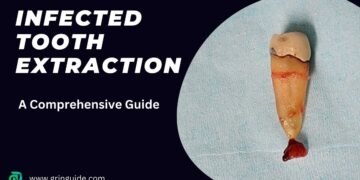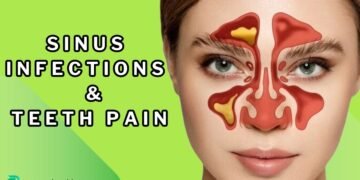Table of Contents
Halitosis, commonly known as bad breath, is a condition that can affect anyone and is characterized by an unpleasant odor emanating from the mouth. It’s not only a social concern but can also be a sign of underlying dental or medical issues.
The Main Causes of Halitosis
Bad breath can be caused by a variety of factors. Understanding these causes is essential in effectively treating and managing halitosis.
- Poor Oral Hygiene: One of the primary causes of Bad breath is inadequate oral hygiene. When proper brushing and flossing techniques are not followed, food particles and bacteria can accumulate in the mouth, leading to unpleasant breath odor.
- Gum Disease: Periodontal diseases such as gingivitis and periodontitis can contribute to halitosis. These conditions result from the buildup of plaque and tartar, causing inflammation and infection in the gums.
- Dry Mouth: Saliva plays a crucial role in maintaining oral health by neutralizing acids and washing away food particles. When the mouth becomes dry, often due to medications, certain medical conditions, or mouth breathing, it can result in halitosis.
- Certain Foods and Drinks: Consuming strong-smelling foods and beverages like garlic, onions, coffee, and alcohol can temporarily cause bad breath. These odors are released into the bloodstream and expelled through the lungs.
- Tobacco Use: Smoking and tobacco products not only leave a distinct smell on the breath but can also lead to gum disease and dry mouth, both of which contribute to halitosis.
- Medical Conditions: Halitosis can be a symptom of underlying medical conditions such as respiratory infections, sinusitis, diabetes, liver or kidney problems, and gastrointestinal issues.
- Poorly Fitting Dental Appliances: poorly fitting dentures or dental appliances can trap food particles and bacteria, leading to halitosis.
Treating Halitosis
While Bad breath can be embarrassing and distressing, the good news is that it is often treatable. The appropriate treatment for halitosis depends on its underlying cause:
- Good Oral Hygiene Practices: Maintaining proper oral hygiene is crucial in preventing and treating Bad breath. This includes brushing your teeth at least twice a day, flossing daily, using interdental brush and cleaning your tongue using a tongue scraper or a toothbrush.
- Regular Dental Check-ups: Visiting your dentist regularly for professional cleanings and check-ups is essential in identifying and treating any oral health issues contributing to Bad breath.
- Treating Gum Disease: If gum disease is the cause of Bad breath, your dentist may recommend deep cleaning procedures such as scaling to remove plaque and tartar and promote gum healing.
- Addressing Dry Mouth: If dry mouth is the culprit, your dentist may suggest saliva-stimulating medications, artificial saliva products, or lifestyle changes to alleviate the symptoms and improve oral moisture.
- Dietary Modifications: Avoiding foods and beverages that contribute to bad breath, such as garlic and coffee, can help manage Bad breath. Drinking plenty of water throughout the day can also help keep the mouth hydrated.
- Quitting Tobacco Use: Quitting smoking and tobacco products can significantly improve breath odor and overall oral health.
- Treating Underlying Medical Conditions: If Bad breath is a symptom of an underlying medical condition, it is crucial to address and treat that condition in order to alleviate the bad breath.
Does Halitosis Ever Go Away? Can You Reverse Halitosis?
Bad breath can be temporary or chronic, depending on its underlying cause. In many cases, practicing good oral hygiene and making necessary lifestyle changes can effectively eliminate bad breath.
However, if Bad breath persists despite these efforts, it is essential to consult a dentist or a healthcare professional to identify and address any underlying oral or medical conditions that may be contributing to the problem.
With proper treatment and management, it is often possible to reverse Bad breath. However, the success of treatment depends on the specific cause and the individual’s commitment to maintaining good oral hygiene practices and following the recommended treatment plan.
What Does Halitosis Smell Like?
Halitosis, commonly known as bad breath, can have various distinct smells depending on its underlying cause. Here are some ways people describe the odor associated with halitosis:
- Sulfur or Rotten Eggs: Some individuals compare the smell of bad breath to sulfur or rotten eggs. This is often due to the breakdown of proteins by oral bacteria.
- Stale or Foul: Others describe it as a stale, foul, or unpleasant odor that lingers even after brushing or using mouthwash.
- Acidic or Metallic: In some cases, Bad breath may have an acidic or metallic tinge, especially if it’s related to certain medical conditions or medications.
- Sweet or Fruity: Rarely, bad breath can have a sweet or fruity smell, which might be associated with conditions like diabetes or ketoacidosis.
Remember that the specific smell can vary based on the underlying cause of Bad breath. If you’re concerned about bad breath, consult a dentist or healthcare provider for proper evaluation and personalized advice.
Can You Smell Your Own Halitosis?

The specific scent of halitosis is often difficult for individuals to detect on their own due to a phenomenon known as olfactory adaptation.
Olfactory adaptation refers to the ability of the human nose to become accustomed to certain smells over time. This adaptation can make it challenging for individuals with chronic Bad breath to perceive their own bad breath accurately. However, others around them may notice the unpleasant odor.
Can Other People Smell My Breath?
It is important to note that people may feel self-conscious about discussing Bad breath, so it is not always easy to know if others can smell your breath. If you suspect you may have Bad breath, it is best to consult a trusted friend or family member or seek professional advice from a dentist or healthcare provider.
Can Kissing Someone with Halitosis Give You Halitosis?

Kissing someone with halitosis does not directly cause you to develop Bad breath. However, it is possible for the bacteria responsible for bad breath to be transferred from one person to another through close contact, such as kissing.
If you regularly come into close contact with someone who has chronic halitosis, it is important to maintain good oral hygiene practices and consider discussing the issue with them in a sensitive and supportive manner.
Encouraging them to seek professional help can be beneficial for both their oral health and their personal relationships.
How Can I Tell If I Have Halitosis?
Determining whether you have Bad breath can be challenging due to the olfactory adaptation mentioned earlier. However, there are a few methods you can use to get an idea of your breath’s freshness:
- Self-Assessment: While not foolproof, licking your wrist, allowing it to dry for a few seconds, and then smelling it can give you a rough indication of your breath’s odor.
- Asking a Trusted Person: Approach a close friend, family member, or your dentist and ask for their honest opinion about the freshness of your breath.
- Using a Halimeter: A halimeter is a device that measures the amount of volatile sulfur compounds in your breath, which are often responsible for bad breath. Your dentist can perform this test to provide a more accurate assessment.
If you suspect you have Bad breath, it is essential to consult a dentist or healthcare professional. They can conduct a thorough examination, identify any underlying causes, and recommend appropriate treatment options.
Summary
Halitosis, commonly known as bad breath, is a condition that results in an unpleasant odor emanating from the mouth. It’s not just a social inconvenience but can also be a sign of underlying dental or medical issues.
If you’re concerned about persistent bad breath, it’s important to consult with a dental or healthcare professional to determine the cause and appropriate treatment.
FAQs
-
What is Halitosis?
Halitosis, commonly known as bad breath, is a condition characterized by an unpleasant odor coming from the mouth. It can be caused by a variety of factors, including poor oral hygiene, certain foods, smoking, dry mouth, and underlying medical conditions.
-
How Common is Halitosis?
Halitosis is a common condition that affects millions of people worldwide. It can occur in people of all ages, but it is more prevalent in adults. Studies have shown that about 25% of the population suffers from chronic bad breath.
-
What are the Causes of Halitosis?
There are several causes of Bad breath, including:
1. Poor oral hygiene: Not brushing and flossing regularly can lead to the buildup of bacteria in the mouth, causing bad breath.
2. Food: Certain foods, such as onions, garlic, and spicy foods, can leave a strong odor in the mouth.
3. Smoking: Smoking not only causes its own distinct smell, but it also dries out the mouth, leading to bad breath.
4. Dry mouth: Saliva helps to cleanse the mouth and remove odor-causing bacteria. A dry mouth can result in bad breath.
5. Medical conditions: Halitosis can be a symptom of underlying medical conditions, such as gum disease, respiratory infections, and digestive disorders. -
How Can Halitosis be Treated?
The treatment for Bad breath depends on the underlying cause. In most cases, improving oral hygiene practices, such as regular brushing and flossing, can help to reduce bad breath. Other treatments may include using mouthwashes, tongue scrapers, and maintaining good hydration.
If the bad breath persists despite these measures, it is important to consult a dentist or healthcare professional for further evaluation and treatment.
Remember, maintaining good oral hygiene and addressing any underlying medical conditions are key to preventing and treating halitosis.











